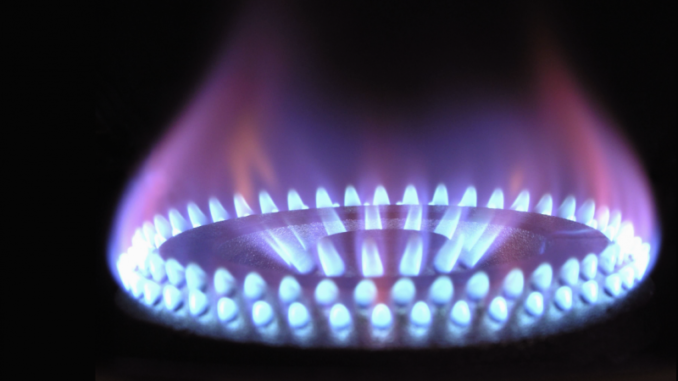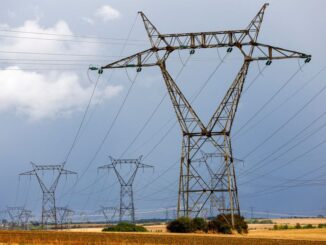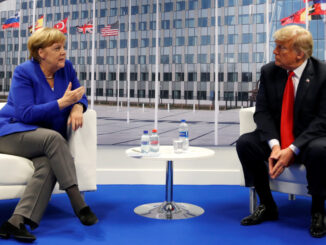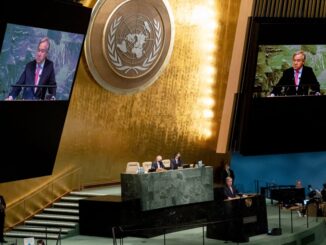
Europe has faced substantial energy challenges during the past months, many of which are connected to the war in Ukraine. Sanctions and other measures imposed by the European Union and individual countries have reduced the continent’s strong dependence on Russian oil and gasoline. However, countries which rely more heavily on Russian energy have faced more pronounced consequences from the restrictions. This has prompted many European countries to plan new strategies to mitigate the impact, but as winter approaches, the matter is becoming vastly more urgent. Europe will doubtlessly face significant energy challenges through the cold season, but the effectiveness of its response will depend on alternative energy sources, supply diversification, and the geopolitical landscape.
The European nations are implementing various strategies to address the shortage through alternative energy. Last month, Chancellor Olaf Scholz announced that Germany’s prior preparations – filling natural gas storage facilities, building liquefied natural gas terminals, and reactivating coal plants, the Associated Press reports – have placed the country in a better position. These measures are meant to bring down energy prices, which, Scholz says, is among Germany’s most pressing priorities. At the end of September, the Chancellor set out a €200 billion package, Reuters says, as an additional measure to mitigate high energy prices.
Germany’s alternatives are meant to avoid the need for scheduled blackouts and energy rationing, though this will not work for all countries. In Hungary, for example, heavy dependence on Russian gas and oil has significantly spiked energy costs, and with few alternative energy sources, using similar strategies as Germany is not currently feasible.
One important caveat of alternative energy sources is their sustainability. What are the effects of using a given energy source for the environment? This question is particularly relevant for countries using coal and other non-renewable sources of energy. In Germany, restarting the coal plants has prompted concerns from environmental groups over growing pollution.
Firewood is also proving to be popular across Europe to keep places warm, but, according to Politico, many households in Central and Eastern Europe were already using “solid fuels” such as wood and coal to heat their homes before the Russian energy sanctions. Higher accessibility and promotion of initiatives to alleviate energy concerns, such as wood stove vouches waiving environmental regulations, have made widespread use of these fuels more popular, but given growing demand as the price of other resources rises, Euractiv notes that shortages and rapid price increases are putting pressure on the market.
The Politico report outlines the main concerns with using these alternative sources of energy: increased air pollution, reversing clean air progress, and the potential health impacts of breathing in fine particles. The first factor has to do with more people burning wood and coal across Europe, which will affect air quality levels. Second, the reversal of clean air progress means that at a broad level, countries will need to revise their pollution reduction goals. “What we’re seeing is many governments making U-turns on policies that are needed to address air pollution from domestic heating,” Ugo Taddei, head of clean air at the legal charity ClientEarth, told Politico for the report. Lastly, the health impacts of breathing in fine particles cannot be underestimated. N.G.O.s in Hungary and beyond have called for the use of “suitable wood rather than ‘treated wood, plastic rubber and other waste.’” citing concerns regarding breathing difficulties and other life-threatening complications.
In the short term, the cost-effective wood and coal strategy will suffice, but more sustainable, less pollutive forms of energy will be imperative in the long term to avoid another energy security crisis. Laying the foundations for increased renewable energy sources will be essential in creating future energy security. However, the rollout of solar panel installations and manufacturing, windmill installations, and creating the infrastructure for these energy sources will take time and money. Some countries have opened up to the idea of using nuclear energy if needed, but support for this source of energy is mixed. Germany, for instance, will keep reactors on standby if a situation requires their use. Other countries, such as Switzerland, are reconsidering the shutdown of nuclear reactors given the effects of Russia’s war in Ukraine.
Central and Eastern European countries are not as wealthy as their counterparts in Western Europe, making energy challenges a significant burden for their people and businesses. Protests over high energy costs have already begun sparking in several countries, including Belgium, Czechia, and Hungary. Paying energy bills, cutting back on energy use, finding other ways to heat up a home, and availability of alternative sources of energy are all concerns.
Government officials have expressed the urgency of resolving the issue and alleviating their citizens. Over the course of the war, Prime Minister Viktor Orban has expressed frustration with EU sanctions on Russian gas and oil, stating that it has been a driving factor in rising costs. As Giorgia Meloni, who mirrors some of Orban’s policies, comes into power this month, Italy’s positions on several key issues are likely to change. Reports from Balkan Insight note that Bulgaria may even be looking into signing a new gas contract with Gazprom, one of the major Russian gas and oil providers of Europe, after suspending an existing contract due to the war in Ukraine.
“This is the leverage that Putin still has – that Europe would have to face disappointed or impoverished societies,” Agata Loskot-Strachota, senior fellow for energy policy at the Center for Eastern Studies in Warsaw, told the Associated Press.
Diversifying the energy supply, then, is the next step. The E.U. is already in consultation with external parties, including Azerbaijan, Nigeria, Norway, and United States, regarding the provision of energy to alleviate the existing shortage. These consultations must continue in order to create energy security and better position Europe.
Broader geopolitics, not just in Europe, but in neighboring regions, influence the evolving energy crisis. At the time of this writing, E.U. countries and N.A.T.O. members are investigating leaks in the Nord Strom pipelines, which reports from Sweden and Denmark suspect were caused by explosions. Radio Free Europe/Radio Liberty adds that N.A.T.O. “has voiced ‘deep concern’ over the damage sustained by the Nord Stream pipelines in the Baltic Sea, calling the incidents ‘deliberate, reckless, and irresponsible acts of sabotage.’” The incidents “[look] like a terror attack, probably conducted on a state level,” Russia’s Dmitry Peskov told reporters. There are no direct accusations from either side at this time, but full investigations are still underway.
The Nord Strom investigation puts the spotlight on the protection and robustness of critical infrastructure, something which, though it has not received as much attention as energy sourcing, is still an important aspect of energy security. Attacks on critical infrastructure have happened in Ukraine, and an escalation of conflict in the region could lead to a higher likelihood of an attack on important energy grids.
Other key developments which may affect the energy crisis include future Russian actions after the referendums in Ukrainian territory, which the West has called illegitimate, and nuclear weapon rhetoric.
In all, the current situation continues to evolve, and, as the past months have shown, it can change rapidly. Energy supply issues will continue to dominate into the winter and likely into next year. To prepare for future energy crises, Europe must invest in renewable energy, continue supply diversification, and monitor geopolitical developments. Greater emphasis on renewable alternatives will ensure less prolonged reliance on wood and coal, and a more robust infrastructure around these renewable sources will also reduce reliance on nonrenewable sources. Supply diversification, a subject that has been in conversation for over a decade, must now happen at a faster rate.
The war in Ukraine demonstrates the fragility of relying on a single source for a large percentage of energy needs. In a changing geopolitical environment, European countries must be ready to respond to any escalating threats while also considering the implications of their course of action. Not all of these strategies will fully secure Europe from another energy crisis, but they will help prepare Europeans for the future.



